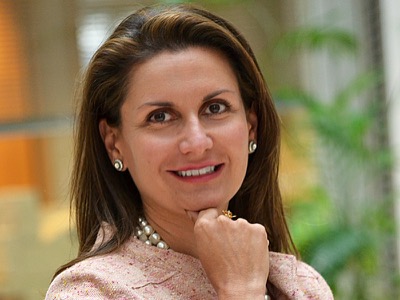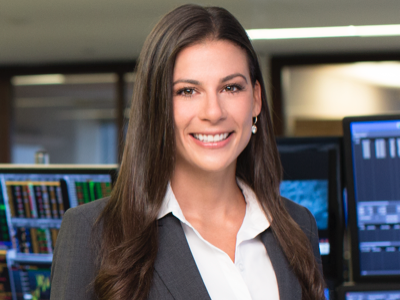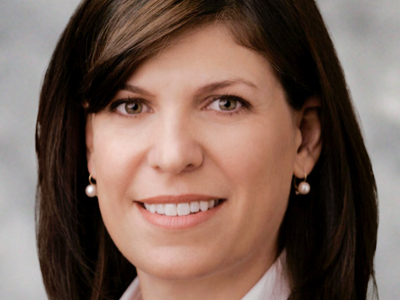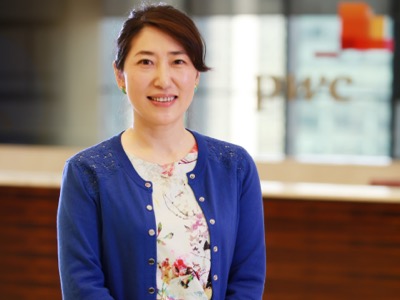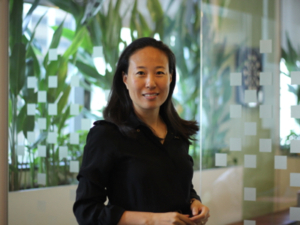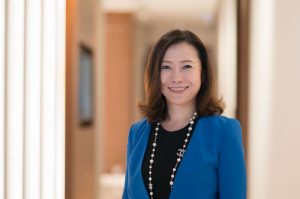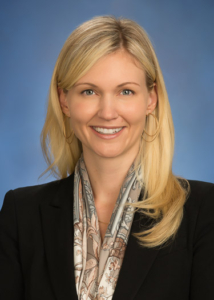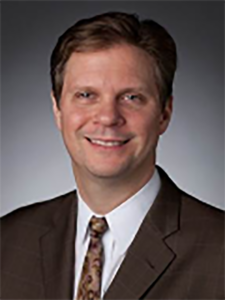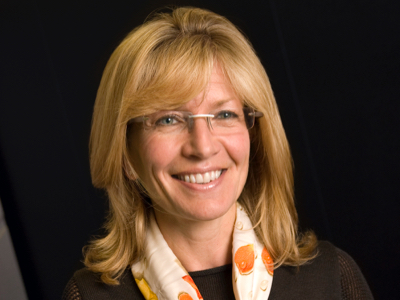 Understand what drives you and find your passion early on, advises Sarah Churchman, who has lived her own advice after embarking on an unexpected career in human resources.“I like to say I got a rookie start in human resources,” says Churchman, who had always thought she wanted to be a lawyer. After studying law and realizing it wasn’t for her, she took some time to travel and then embarked on a human resources career that she has maintained for almost 30 years. “It wasn’t the career I thought I’d have but I’ve been delighted to take this path,” she says, citing the huge variety of work she has done from rewards programs to recruiting.
Understand what drives you and find your passion early on, advises Sarah Churchman, who has lived her own advice after embarking on an unexpected career in human resources.“I like to say I got a rookie start in human resources,” says Churchman, who had always thought she wanted to be a lawyer. After studying law and realizing it wasn’t for her, she took some time to travel and then embarked on a human resources career that she has maintained for almost 30 years. “It wasn’t the career I thought I’d have but I’ve been delighted to take this path,” she says, citing the huge variety of work she has done from rewards programs to recruiting.
Helping PwC Lead as a Diversity Champion
Introducing PwC to the idea of diversity and inclusion back in the early 2000s represents a highlight as one of the professional achievements of which she is most proud
“While we had always been an equal opportunity employer, we had never measured our level of success,” she says. Since the beginning, and through the various mergers the firm has undergone, Churchman has helped spearhead the initiative. Today its diversity strategy is a business priority and PwC UK is recognized as a leader for its work.
She helped the firm look at work/life balance in a practical way, realizing that the environment and culture, combined with policy, can make a difference. And she made sure that a diversity agenda was integral to the broader talent management agenda.
“It’s exciting to look at the values we want to promote and the culture we want to create and realize that inclusion is at the root,” she says.
Under her management, PwC became one of the first firms to experiment with unconscious bias in 2005. While commonplace today, at the time not many organizations were exploring its impact.
She also helped introduce the concept of sponsorship combined with mentorship as a way to drive diversity, and published a groundbreaking gender pay gap survey. “Our maturity in this area means we’ve been a step ahead of the curve, always aiming for the next big thing,” she says.
Establishing an Inclusive Talent Culture at PwC
Most people believe they are open-minded, and it’s only when they see data that shows the opposite that they become interested in changing their inclusion mindset, Churchman has found. That’s why a key part of the diversity and inclusion initiative has been to track solid data around talent management decisions. Showing who’s being promoted and hired by gender and ethnic background is critical and serves as a way to prove that very little of a company’s exclusion is intentional, but rather an unintended consequence. “Bringing diversity to the forefront is fundamental to moving an organization forward,” she says.
And that includes making it a societal issue as well. “Organizations are a microcosm of society and there shouldn’t be expectations on women that are different from men in terms of who should be a caregiver. We’re trying to evolve the workplace, but we have to evolve society as well,” she says.
Resilience as a Key to Female Career Success
Churchman has long championed resilience as a key component of PwC’s well-being strategy, emphasizing it as a core skill as part of PwC’s leadership development strategy.
She finds that most women tend to be resilient, because in many cases they are juggling two jobs – at work and at home. “Women and men need to maintain a razor-sharp focus on where they want to go, and realize the importance of bouncing back from setbacks,” she says.
Cultural issues, however, have historically gotten in the way; for example, stereotypes that assume some people don’t want to be leaders. “I see that women can hold themselves back by ruling themselves out and not believing they can do the job at the next level.”
She encourages women to share their ambitions with others who can help them on their journey, rather than just assuming they will know. And outside of work, she advises professionals to choose their long-term partner carefully. “Don’t be the one who tries to do everything,” she says.
Family Life Matters
Churchman has seen the benefits of an equal partnership play out in her own life, saying that her family is a real leveler for her. She has been able to combine her career with raising two children, who are now adults, ages 22 and 20. “I find it incredible; how did that happen?” she says, adding that they will always be her “little prince and princess,” fitting since they are called George and Charlotte.
They have always been part of her career as well; in fact, she says that they have always been her biggest critics. “They would give me honest – and occasionally brutal — feedback when they would hear me on the radio,” she laughs. Always up for a family trip, she is looking forward to a family holiday to the Amalfi coast in Italy.
She now shares her home with a labradoodle called Poppy, which means her relaxing and thinking time includes long walks. In addition, she makes time for charity work; she was a trustee for a breast cancer charity and is now looking forward to joining the board of another group, the Employers Network for Equality & Inclusion, which is working to support employers committed to driving the diversity agenda forward, an endeavor she anticipates will complement her work at PwC.

